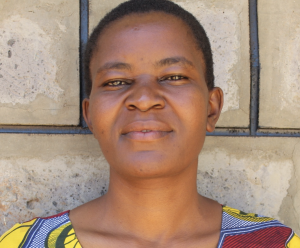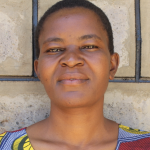"In this school, we are having problems with the scarcity of water, and without water, we can't move forward because water is life," said Deputy Head Teacher of Muting'ong'o Primary School Mr. James Andanje.
There is no water at Muting'ong'o Primary School for the 585 students and 11 teachers and staff who go there every day.
To make up for this shortage, students are required to bring water from home on their way to school at 6:30 am, and again on their way back from lunch at 2:00 pm. They are also sent to a spring in the village 2 kilometers away whenever they run out of water during the school day, disrupting class time and consequently damaging students' academic performance. Each walk to get water, whether from home or from the spring, is tiresome and time-consuming, draining students' attention and energy that should be spent in class.
There is no method for treating the water students collect once it is back on campus. The 11 teachers cannot personally monitor the sources students choose to use when bringing water to school, so its safety is not always guaranteed. The quality of the spring water is jeopardized due to poor maintenance of the surrounding area and the spring structure. The safety of all water the students fetch is further put at risk by the dirty containers students use to fetch it. Because the water is combined for use back at school, even 1 contaminated container or source means everyone is subjected to waterborne diseases.
"We have been having issues with absenteeism caused by waterborne diseases," said teacher Mr. Isaac Watayi.
"I don't feel comfortable here at school when I think of having to risk my health by being forced to consume unsafe water within the school compound," added Mr. Andanje.
Contracting waterborne diseases means more missed class time for both teachers and students, further impacting students' grades. Students' parents and the school are also draining their resources trying to pay for students' treatment and medication through the local hospital - money that would have otherwise been spent on other necessities including school fees. This keeps students in a vicious cycle of attending school, getting sick from the water at school, missing class to seek treatment, followed by further absenteeism if their family cannot cover their school fees due to their medical bills.
We, the students, and the staff at Muting'ong'o Primary agree - it is time to disrupt this cycle.
What We Can Do:
Rain Tank
A 75,000-liter rainwater catchment tank will help alleviate the water crisis at this school. The school will help collect the needed construction materials such as sand, bricks, rocks, and water for mixing cement. We will complement their materials by providing an expert team of artisans, tools, hardware, and the guttering system. Once finished, this tank will begin catching rainfall that will be used by the school’s students and staff for drinking, handwashing, cooking, cleaning, and much more.
We and the school strongly believe that all of these components will work together to improve standards at this school, which will help lead to better student academic performance and will help to unlock the potential for these students to live better, healthier lives.
Handwashing Stations
There is currently nowhere for students to wash their hands after using the latrines or before eating lunch, let alone the water to do so.
The student health club will oversee the 2 new handwashing stations we will provide, and make sure they are kept clean and in working condition. The club leaders will fill the handwashing stations with water daily and make sure they are always supplied with a cleaning agent such as soap or ash.
VIP Latrines
The latrines currently available at Muting'ongo are few in number compared to the student population. Because of this, they are filling up fast and emit a strong smell without routine cleaning due to the water shortage here.
2 triple-door latrine blocks will be constructed with local materials that the school will help gather. 3 doors will serve the girls while the other 3 will serve the boys. All of these new latrines will have cement floors that are designed to be easy to use and to clean. And with a rain tank right on school property, there should be enough water to keep them clean.
Training on Health, Hygiene, COVID-19, and More
We will hold a 1-day intensive training session with students, teachers, and parents. This training will cover a wide range of topics including COVID-19 symptoms, transmission routes, and prevention; personal and environmental hygiene; and the operation and maintenance of the rain tank, latrines, and handwashing stations. There will be a special emphasis on handwashing.
Our team of facilitators will use a variety of methods to train, including participatory hygiene and sanitation transformation, and asset-based community development. We will initiate a student health club, which will prepare students to lead other pupils into healthy habits at school and at home. We will also lead lectures, group discussions, and provide illustrative handouts to teach health topics and ways to promote good hygiene practices within the school including handwashing and water treatment. We will then conduct a series of follow-up trainings before transitioning to our regularly scheduled support visits throughout the year.

 Rainwater Catchment
Rainwater Catchment
 Rehabilitation Project
Rehabilitation Project







































